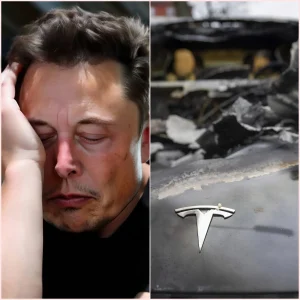Ben Affleck Opens Up About the “Incredibly Painful” Experience of Playing Batman
Ben Affleck’s tenure as Bruce Wayne/Batman in the DC Extended Universe (DCEU) began with a bang in Zack Snyder’s 2016 blockbuster Batman v Superman: Dawn of Justice. He reprised the role across several high-profile projects, including Justice League, a brief scene in The Flash, and a cameo in David Ayer’s Suicide Squad. However, despite his significant presence in the DCEU, Affleck recently revealed that portraying the Dark Knight was “an incredibly painful experience”—a candid admission that sheds light on his rocky journey with the iconic character.
Affleck was once slated to helm a standalone Batman film, starring in and directing it himself, but the project was swiftly shelved. Instead, Matt Reeves took the reins, delivering a fresh take on the Caped Crusader with Robert Pattinson in The Batman. Shortly after, Warner Bros. overhauled DC Studios’ leadership, appointing James Gunn and Peter Safran to reboot the DC cinematic universe, effectively wiping the DCEU slate clean. Reflecting on his time as Batman, Affleck didn’t mince words: “There were many reasons that experience was so painful, and not all of them had to do with making superhero movies. I’m not interested in the genre anymore—not because it was a bad experience, but because I’ve lost the passion for what once drew me in. And I certainly don’t want to repeat something like that.”

So, what went wrong? Affleck pinpointed a “misalignment” between the stakeholders—filmmakers, studios, and himself—as a key factor. “A big part of it was the lack of unified goals, misunderstandings, and differing expectations,” he explained. Personal struggles at the time only compounded the issue. “To be honest, I wasn’t bringing anything special to the table either. I showed up every day with a lot of negative energy. I didn’t cause trouble—I did my job and went home—but that wasn’t enough.” Affleck admitted that his unstable mindset and lack of positivity made an already challenging experience even worse.
Beyond personal woes, Affleck highlighted a broader creative disconnect that plagued his Batman era. “The tone of those Batman films was too dark and mature, which alienated a huge chunk of younger audiences—the very demographic that’s critical to superhero movies,” he said. He recalled a telling moment with his own son: “Even my kid was too scared to watch it. When I saw that, I thought, ‘Damn, we’ve got a problem.’ The director wanted to keep pushing that grim direction, while the studio wanted to win back younger viewers—two completely opposing goals. That’s a recipe for failure.” This tonal clash, he believes, was a fundamental flaw that undermined the films’ success.
Affleck’s Batman debuted in Batman v Superman, a film that polarized fans with its somber, deconstructed take on the hero. While some praised his grizzled, battle-worn portrayal, others felt it strayed too far from the character’s roots. His arc continued in Justice League, a production notoriously troubled by reshoots and creative shifts after Snyder’s exit, further muddying the DCEU’s vision. By the time Affleck appeared in The Flash and Suicide Squad, his enthusiasm had visibly waned—a sentiment he now confirms was deeply felt behind the scenes.

Today, Affleck is channeling his energy into Artists Equity, the production company he co-founded, with a clear goal: to avoid repeating the missteps of his Batman days. “I’m focused on building something where I can steer clear of experiences like that in future projects,” he said. This shift marks a deliberate pivot away from superhero fare, as he seeks creative fulfillment elsewhere in Hollywood.
Affleck’s revelations offer a rare glimpse into the toll of playing a cultural icon amid studio upheaval and personal strife. While his Batman will remain a polarizing chapter in DC’s cinematic history, his honesty underscores the challenges of balancing artistic vision with commercial demands. As the DCU moves forward under Gunn and Safran, with a new Superman and beyond, Affleck’s departure serves as a reminder of the high stakes—and high costs—of wearing the cape. For now, he’s hanging up the cowl for good, leaving the Batcave behind to forge a path of his own.





